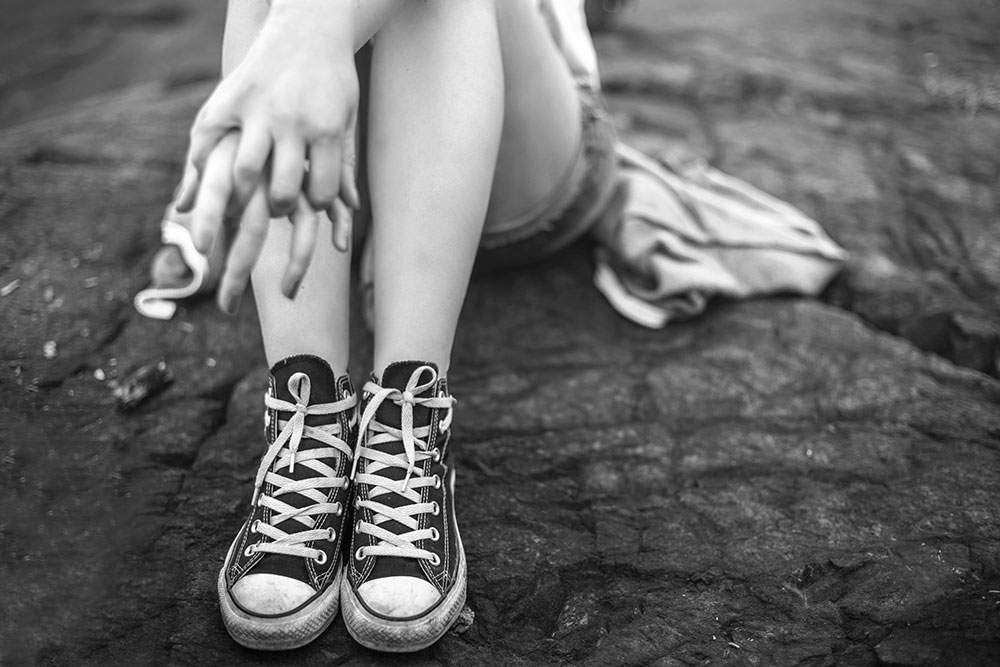Adolescence is a critical time of growth, self-discovery, and, unfortunately, significant challenges. Some teens struggle with behavioral issues, emotional regulation, mental health disorders, and unhealthy coping mechanisms that interfere with their daily lives. When...
Recent Posts
After Residential Treatment: Helping Teens Transition Back Home
Residential treatment can be life-changing for a teen struggling with mental health, trauma, or behavioral challenges. But what happens after your child returns home? The transition back to daily life is a critical period — one that requires patience, structure, and...
How Residential Treatment Supports Teens with Co-Occurring Disorders
Navigating adolescence is challenging enough, but for teens grappling with co-occurring disorders, the journey can feel insurmountable. Co-occurring disorders, also known as dual diagnoses, refer to the presence of two health disorders occurring at the same time....
A Parent’s Guide To Navigating Grief In Teenagers
Grief is a complex emotion that can be challenging for teens to navigate. According to the Childhood Bereavement Estimation Model (CBEM), 1 in 12 children and teens in the U.S. will experience the death of a parent or sibling by age 18. While grief is usually...
How Long Is Residential Treatment for Teens?
If your child is about to begin a stay at a residential treatment center, you’re bound to have a lot of questions. What types of therapy will be involved? Will our family be allowed to visit? And, of course, how long is a teen residential treatment program? In this...
Is Residential Treatment Considered Inpatient or Outpatient?
If you’ve never engaged with residential treatment centers before, it’s common to ask: is residential treatment considered inpatient or outpatient? Well, the answer is simple: our residential teen treatment centers are considered inpatient because teens stay at our...
Benefits of Residential Treatment for Teens: When to Choose It Over Other Treatment Programs
When seeking help for your teen, it’s important to know the benefits of residential treatment teens can take advantage of. For teens suffering from mental health disorders, behavioral disorders, psychological disorders, or addiction issues, there are a variety of...
Does Insurance Cover Teen Residential Treatment?
How Much Does Residential Treatment Cost? Cost of Residential Treatment The cost of residential treatment varies between each Residential Treatment Center (RTC). It may range from free (which is very uncommon) to tens of thousands of dollars per month. And if you are...
3% of Teens Identify as Transgender or Gender Nonconforming in America
How Many Transgender Teens Are There? Approximately 150,000 American teens (ages 13 to 17) identify as transgender in the United States today. Of course, there is no general age in which people typically “discover” or “come out” as transgender. Nonetheless, more and...
Recognizing Signs of Teen Depression: A Guide for Parents
It is very common for children and adolescents to experience occasional moodiness or periods of sadness. The causes of teen depression are multifaceted, involving biological, environmental, and social factors such as bullying, mental health conditions, stressful life...
Distinguishing Between Signs of Depression or “Moodiness” in Teens
Parents often wonder how to distinguish normal teenage mood swings and rebellions from actual symptoms of depression. Fortunately, there are several ways to tell. As many as 1 in 5 teenagers will experience depression at some point during adolescence. Unfortunately,...
Social Anxiety Disorder in Teens: Signs, Symptoms, and How to Help
What is Social Anxiety Disorder? Social anxiety disorder (SAD) affects 1 out of 3 adolescents between 13 and 18 years old. Over 19 million people across America suffer from social anxiety disorder (SAD) today, including a significant number of young adults. It is...
Teen Depression Prevention: Parent, Friend, and Support Tips
At any given time, one out of every five teenagers is experiencing major depression. If you are a parent to an adolescent or teenager, you are likely familiar with the moodiness inherent to this age group. Mood swings are common, as teens are experiencing a vast...
How to Talk to Your Teen About Depression
Teen depression is more common — and more serious — than many parents realize. While emotional ups and downs are a normal part of adolescence, persistent sadness, irritability, or withdrawal may point to something deeper. Knowing how to talk to your teenager about...
Managing Expectations With Teens
As a parent of an adolescent, teen, or young adult, your attitudes, actions, and beliefs can have a tremendous impact on your child’s well-being. Your teen is experiencing the challenging process of transitioning from childhood to adulthood. As someone who has gone...
Los Angeles Mental Health

There are many Los Angeles mental health facilities, including several that focus on teen treatment. So, what sets Polaris Teen apart? Why send your teen to Polaris Teen when he or she is struggling with depression, anxiety, OCD, Asperger’s, anxiety disorders or any of the many disorders that need the help of residential treatment centers?
One of the things that set Polaris Teen among the premier psychological treatment centers Los Angeles has to offer is that we limit ourselves to treating six teenagers at a time in our teen treatment center. This number allows your teen to have optimal social interaction with other teens, who offer a positive support group for one another, while also keeping that interaction at a manageable level and optimizing the amount of actual therapeutic treatment time each adolescent gets with our therapists.
Another thing that makes Polaris Teen effective, even when you haven’t seen results from all kinds of 12 step residential Los Angeles treatment centers is that we refuse to take a one-size-fits-all approach to teen treatment. At our teen rehab center, your teen will be treated like an individual – a real person with real feelings and real value, a unique person who needs treatment that is tailored specifically to their needs.
We use a wide variety of therapeutic approaches. Different teenagers respond differently to different therapeutic methods. It has always been a mistake to try to fit a square peg into a round hole. We spend the time it takes with your teen to discover what works for him or her. The type of therapy that works isn’t nearly as important as finding what works for your one-of-a-kind teenager.
In addition to traditional therapeutic methods (different ones of which are effective with different teens) we often employ therapeutic methods like:
- Guided meditation
- Peer counseling
- Yoga
- Book clubs
- Film discussion
- Creative arts, including drama, art and music
- Narrative groups
- Body image/body connection
- Eye movement desensitization and reprocessing
Another reason Polaris Teen Center sees great success as a teenage rehabilitation center is our commitment to devote the time that it takes to your teen. Most teens are able to get the help they need to get on the road to a solid recovery in 30 days or so at Polaris Teen, but we recognize that different teenagers have different needs. Unlike some Los Angeles mental health facilities, if it takes longer for your adolescent to get the help they need, Polaris Teen will invest the time it takes.
Polaris Teen Center is a residential treatment facility for teens and adolescents suffering from severe mental health disorders. Our highly accredited facility is fully licensed and certified in Trauma Informed Care and is a part of the Behavioral Health Association of Providers (formerly AATA).
Previous Post
Next Post
Related Posts
A Parent’s Guide To Navigating Grief In Teenagers
Grief is a complex emotion that can be challenging for teens to navigate. According to the Childhood Bereavement Estimation Model (CBEM), 1 in 12 children and teens in the U.S. will experience the death of a parent or sibling by age 18. While grief is usually...
How Long Is Residential Treatment for Teens?
If your child is about to begin a stay at a residential treatment center, you’re bound to have a lot of questions. What types of therapy will be involved? Will our family be allowed to visit? And, of course, how long is a teen residential treatment program? In this...
Benefits of Residential Treatment for Teens: When to Choose It Over Other Treatment Programs
When seeking help for your teen, it’s important to know the benefits of residential treatment teens can take advantage of. For teens suffering from mental health disorders, behavioral disorders, psychological disorders, or addiction issues, there are a variety of...
Does Insurance Cover Teen Residential Treatment?
How Much Does Residential Treatment Cost? Cost of Residential Treatment The cost of residential treatment varies between each Residential Treatment Center (RTC). It may range from free (which is very uncommon) to tens of thousands of dollars per month. And if you are...
3% of Teens Identify as Transgender or Gender Nonconforming in America
How Many Transgender Teens Are There? Approximately 150,000 American teens (ages 13 to 17) identify as transgender in the United States today. Of course, there is no general age in which people typically “discover” or “come out” as transgender. Nonetheless, more and...
Recognizing Signs of Teen Depression: A Guide for Parents
It is very common for children and adolescents to experience occasional moodiness or periods of sadness. The causes of teen depression are multifaceted, involving biological, environmental, and social factors such as bullying, mental health conditions, stressful life...
Distinguishing Between Signs of Depression or “Moodiness” in Teens
Parents often wonder how to distinguish normal teenage mood swings and rebellions from actual symptoms of depression. Fortunately, there are several ways to tell. As many as 1 in 5 teenagers will experience depression at some point during adolescence. Unfortunately,...
Social Anxiety Disorder in Teens: Signs, Symptoms, and How to Help
What is Social Anxiety Disorder? Social anxiety disorder (SAD) affects 1 out of 3 adolescents between 13 and 18 years old. Over 19 million people across America suffer from social anxiety disorder (SAD) today, including a significant number of young adults. It is...
Teen Depression Prevention: Parent, Friend, and Support Tips
At any given time, one out of every five teenagers is experiencing major depression. If you are a parent to an adolescent or teenager, you are likely familiar with the moodiness inherent to this age group. Mood swings are common, as teens are experiencing a vast...






